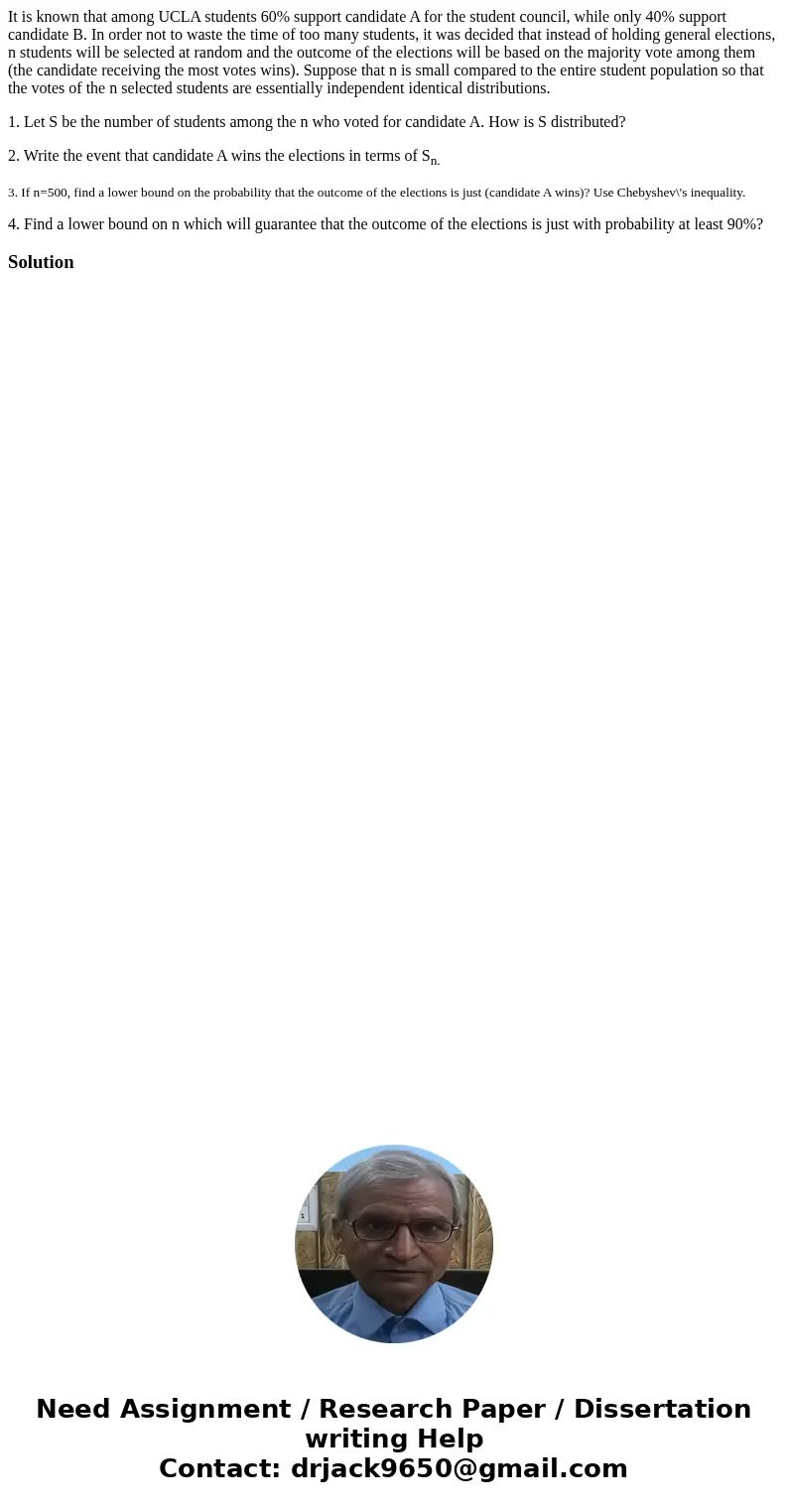It is known that among UCLA students 60 support candidate A
It is known that among UCLA students 60% support candidate A for the student council, while only 40% support candidate B. In order not to waste the time of too many students, it was decided that instead of holding general elections, n students will be selected at random and the outcome of the elections will be based on the majority vote among them (the candidate receiving the most votes wins). Suppose that n is small compared to the entire student population so that the votes of the n selected students are essentially independent identical distributions.
1. Let S be the number of students among the n who voted for candidate A. How is S distributed?
2. Write the event that candidate A wins the elections in terms of Sn.
3. If n=500, find a lower bound on the probability that the outcome of the elections is just (candidate A wins)? Use Chebyshev\'s inequality.
4. Find a lower bound on n which will guarantee that the outcome of the elections is just with probability at least 90%?
Solution

 Homework Sourse
Homework Sourse